Note Taking In Summer Reading
Summertime is the perfect time to get ahead on reading. While I do still take time to read for fun, I love to start reading the books my kids will read during the school year. I encourage my kids to do the same. The only trouble with this reading ahead bit is that the stories aren't fresh when it comes time to discuss them in the school year. Ideally, they would read them again when the books are assigned, but that doesn't always happen. This summer, we're going to be doing some note taking in our summer reading so that we can remember those fresh thoughts when the discussions roll around.
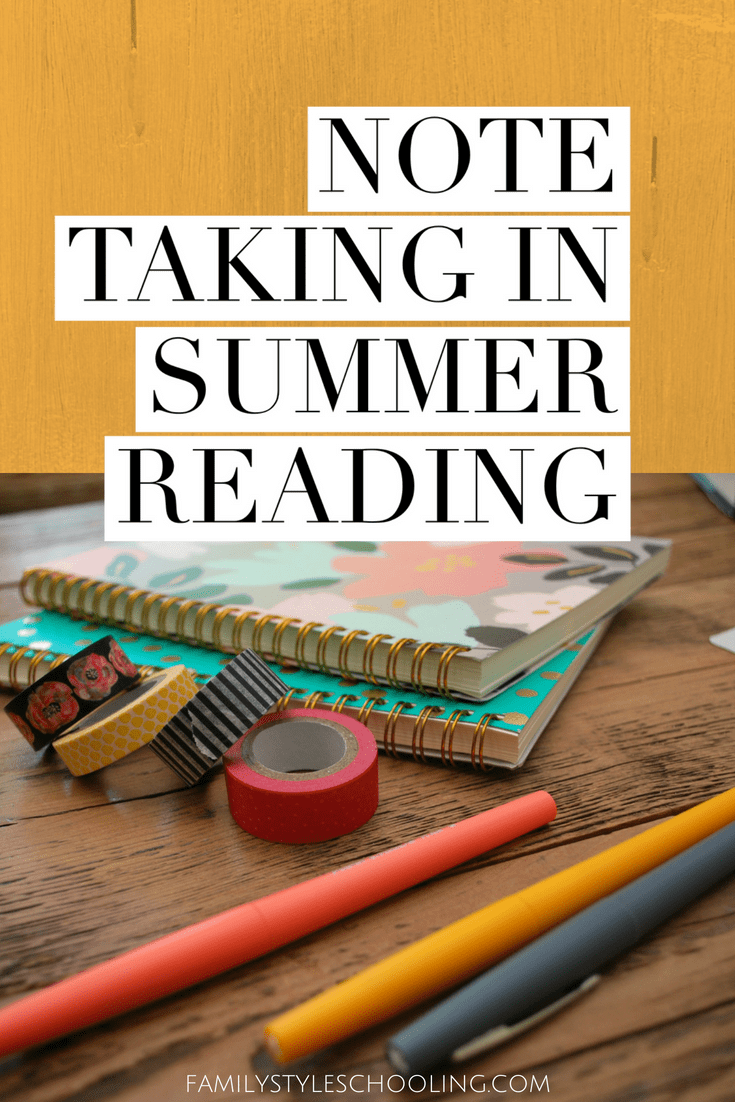
My three kids will be entering Challenge A, Challenge I, and Challenge IV in the fall in Classical Conversations. It's not possible that I will be able to read everything that all three of them will be reading, but I absolutely LOVE reading with them and discussing stories. So, this summer I'm tackling their reading lists, and I'm taking notes so that I can help them think through the ideas throughout the year.
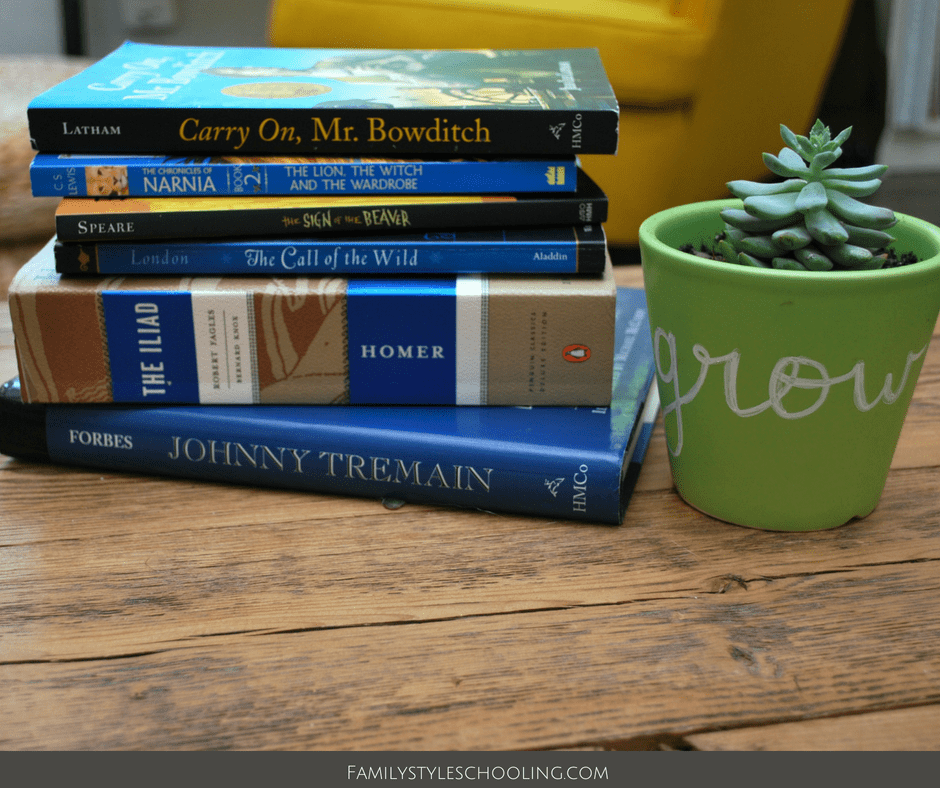
The deciding factor for this endeavor had to be the alluring appeal of an office supply well used. I have a journal for each Challenge level. My favorites have to be the Greenroom spiral notebooks from Target.
I also love a good pen. My recent favorites have to be:
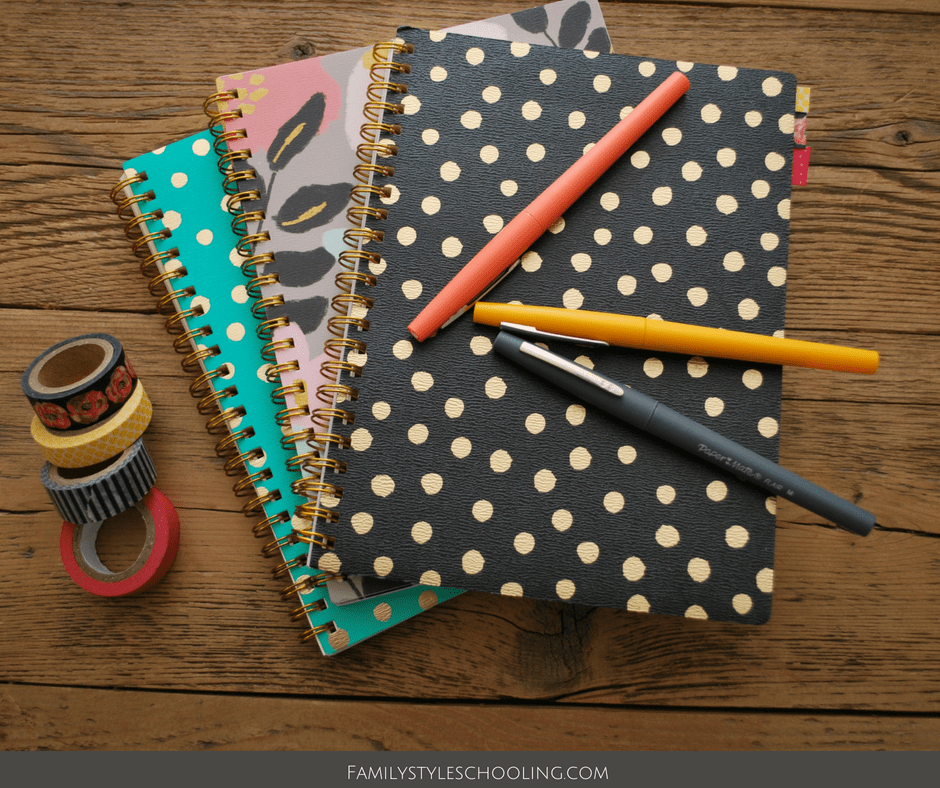
Setting Up Your Note Taking Journal
I'm approaching this note taking journal like I do my Bullet Journal. However, this time I'm using washi tape to identify locations of the the notes on each book instead of page numbers. I'll add the book title to the table of contents as I read it, and then mark the section with a new design of washi tape.
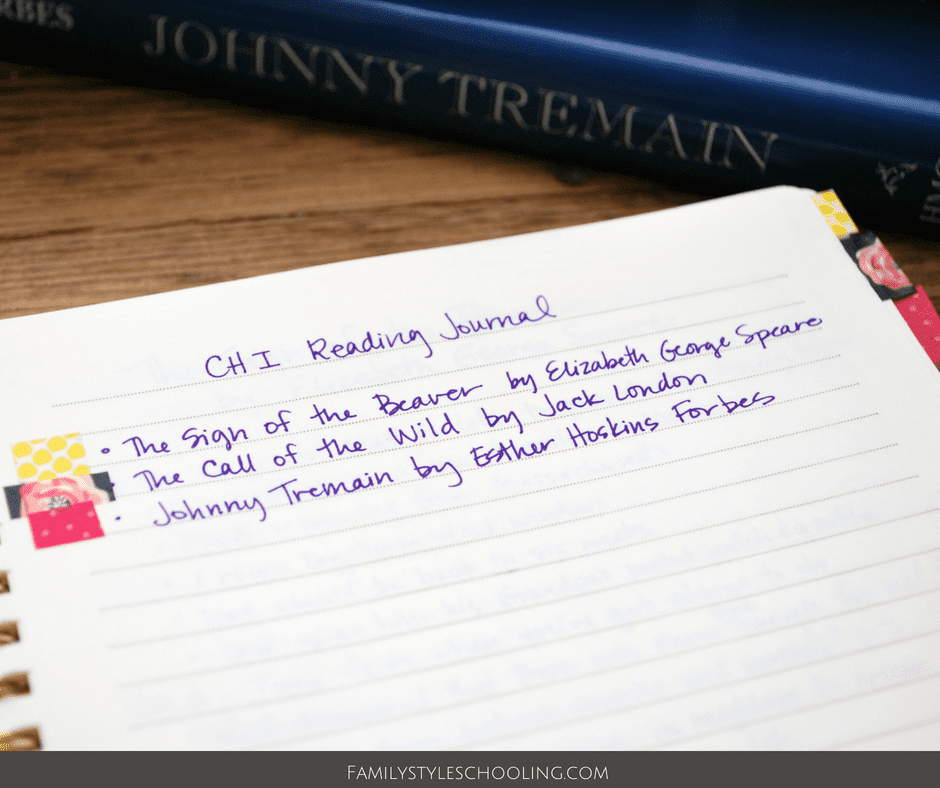
If you're a parent of a Challenge student, the great thing about the CC catalog is that it lists the books in the order that students read them throughout the year. I'm starting with the books they'll start with first and continuing from there. If I don't finish the full list by the end of the summer, I'll just keep reading and taking notes throughout the year.
What Do I Write Down?
The secret to note taking is knowing what to write and how much to write. I'm also treating this journal in a similar way to a commonplace book, but with a bit of a different purpose. In my commonplace book, I'd just write down quotes I love and might want to memorize. In this journal, I want to make sure I can track with the story and be ready to discuss it in the future. Therefore, I'm going to write down a bit more.
1. Events and Issues
I'm starting off with the basics of the story: what happens and what issues arise. Since I know that my kids will be writing papers on these books with the Lost Tools of Writing, I'm going to take note of any actions that a character does that might be fun to contemplate.
In the Sign of the Beaver Matt decides to try to get some honey. He's twelve years old and alone in the forests of Maine. Since he lost his supply of molasses, he's really yearning for a little sweet honey. His decision to try to get some honey breaks open the action of the story. As he is fleeing from angry bees, the Indians come out from hiding and save his life. While at first glance I see his action as foolishness, one might argue that endangering his life ultimately saved it as the Indians teach him skills to truly survive on the land.
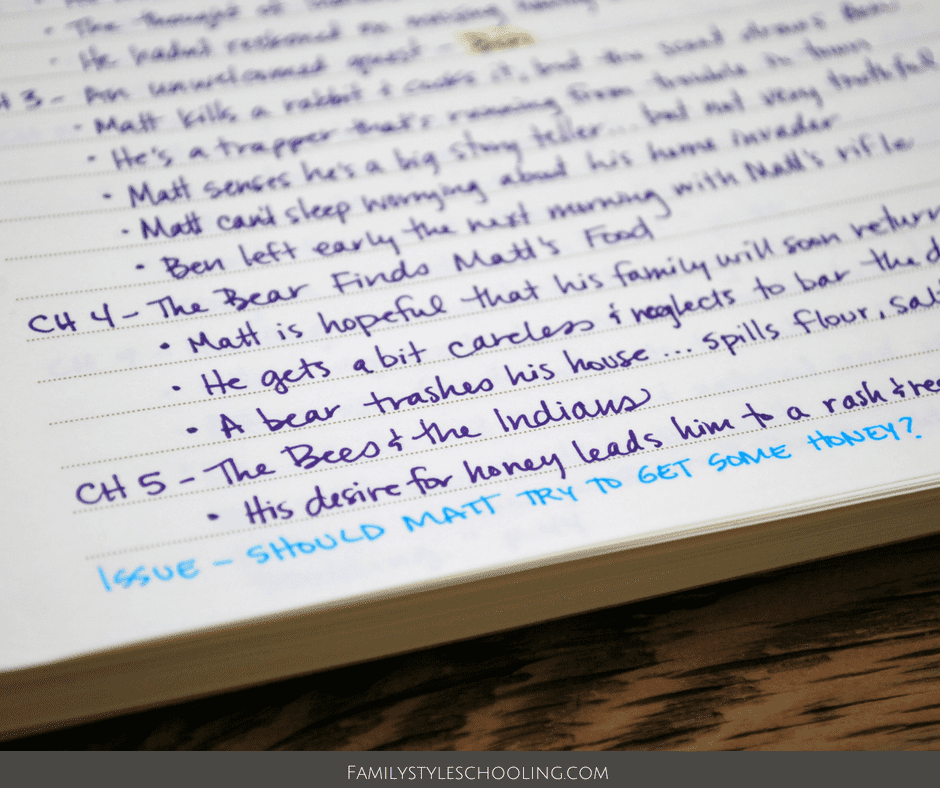
I want to remember issues that stand out while I'm reading so that I'll have good options when the time comes for selecting an issue to contemplate and write about.
2. Characters & Definitions
Characters are a vital element of story that I'll be tracking in my reading journal. I want to know when they first arrive in the story and a little bit about them. I like to use my yellow map pencil to highlight them in my notes so that I can locate them quickly.
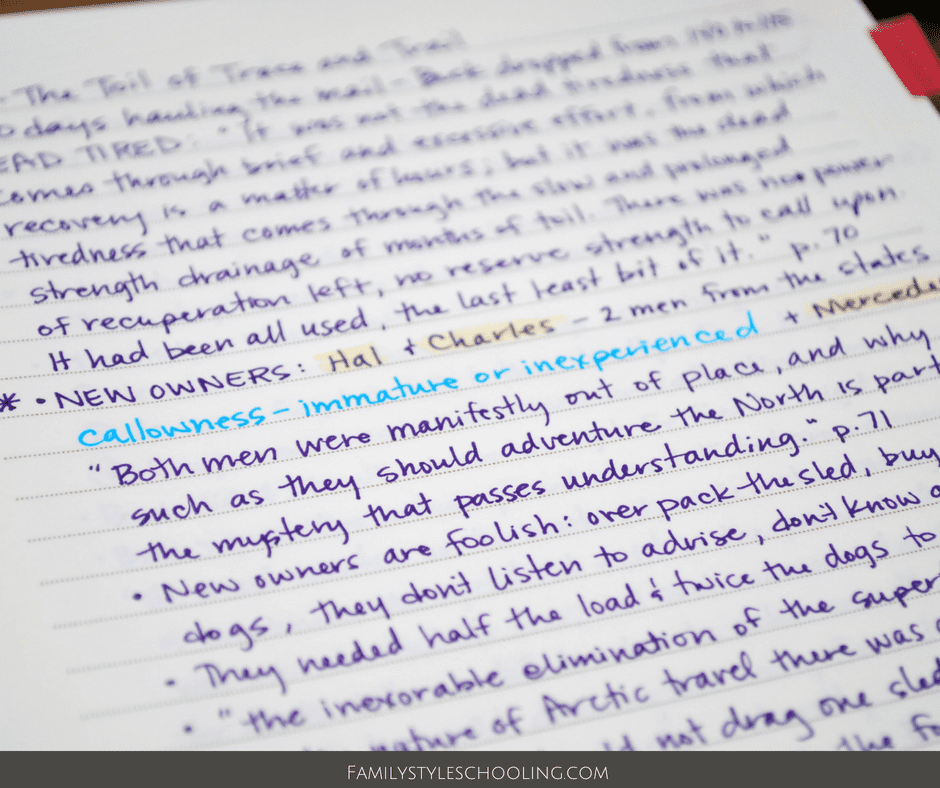
I've also noticed that often there are words that I'm unfamiliar with that encapsulate a scene. For example, in The Call of the Wild, the dog, Buck, gets new owners that should not be entrusted with dogs much less their own lives in the Artic wilderness. Yet, Buck must journey with them. Jack London uses the word "callowness" to describe them. When I looked up the word, I found it meant: "immature or unexperienced". This word embodies and foreshadows the disasters that will come from their setting off on a journey that is beyond their abilities.
3. Quotes & Concepts
Just like in my commonplace book, I still want to write down my favorite quotes. I love to write down the authors words that I want to think about again, but I also love to write down lovely ways that the author expresses an idea. If I want to become a better writer, I must attend to their techniques and the power their words invoke on me as a reader.
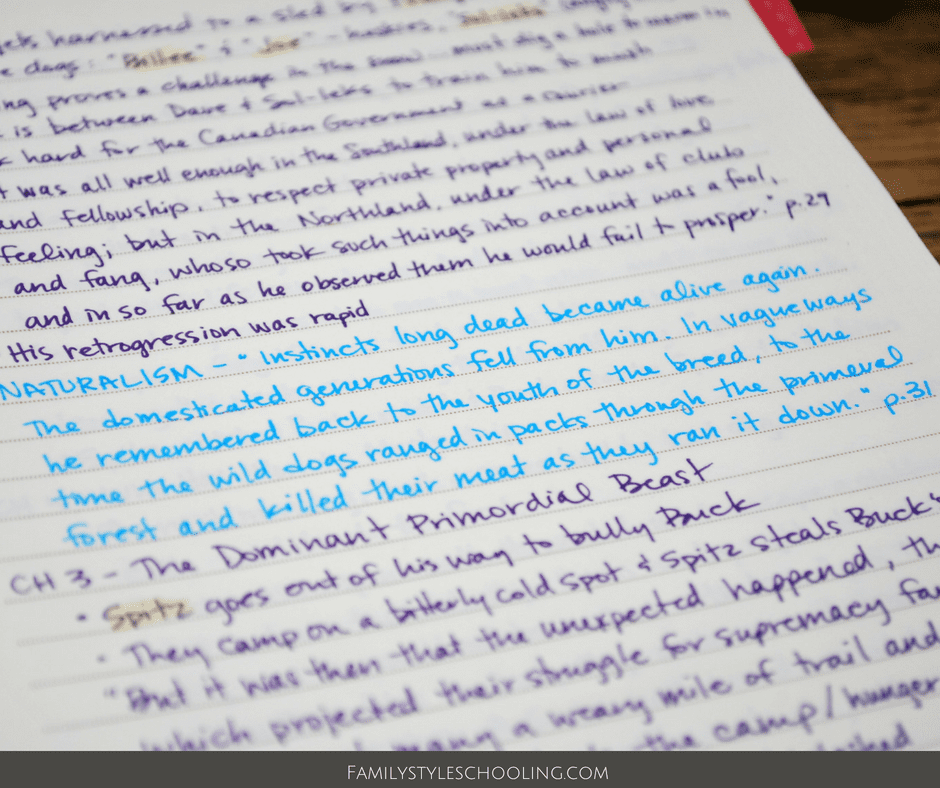
Sometimes you will find certain quotes that clearly outline the author's bias or worldview. I love to write those down so that I can bring those up in a discussion.
I'm really excited about using my summer wisely and setting myself up for success in the new school year while I have the time to prepare!
Betsy Strauss is an unexpected homeschooler, mother of three, who is in a relationship with a sweet man for life. She loves reading books, drinking coffee, and learning anything with her kids.

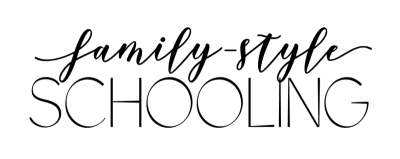
I’m excited now! Thank you! You’ve inspired me.
Yay!!! This is super helpful!
Super ideas here. First yr as ChA director. I work part-time outside the home. How much time do you spend doing this? Feels like so much to put into place(if you include training, videos, practicum, etc).
Well, first of all, I won’t be able to make it through all of the books this summer. I’ll just get a start. I also love to read, so this is fun time for me. I read about an hour in the evenings, but it’s not all Challenge books, so this is just a tool to help me remember what I was thinking as I was reading. Keep in mind, on your first year directing, you won’t be able to master it all. Focus on one or two strands to do well your first year. I recommend Grammar, because it is hard to help the kids out if you’re not tracking, and Exposition, because the literature books hold the themes that work so beautifully for integration. The other strands you can manage better with just good questions and curiosity. Hope this helps!
Thanks so much. I love your blog. I haven’t read a post I didn’t find useful or encouraging.
Thank you Elizabeth! I have really enjoyed writing it! Blessings on your year with Challenge A!! You’re going to LOVE it!